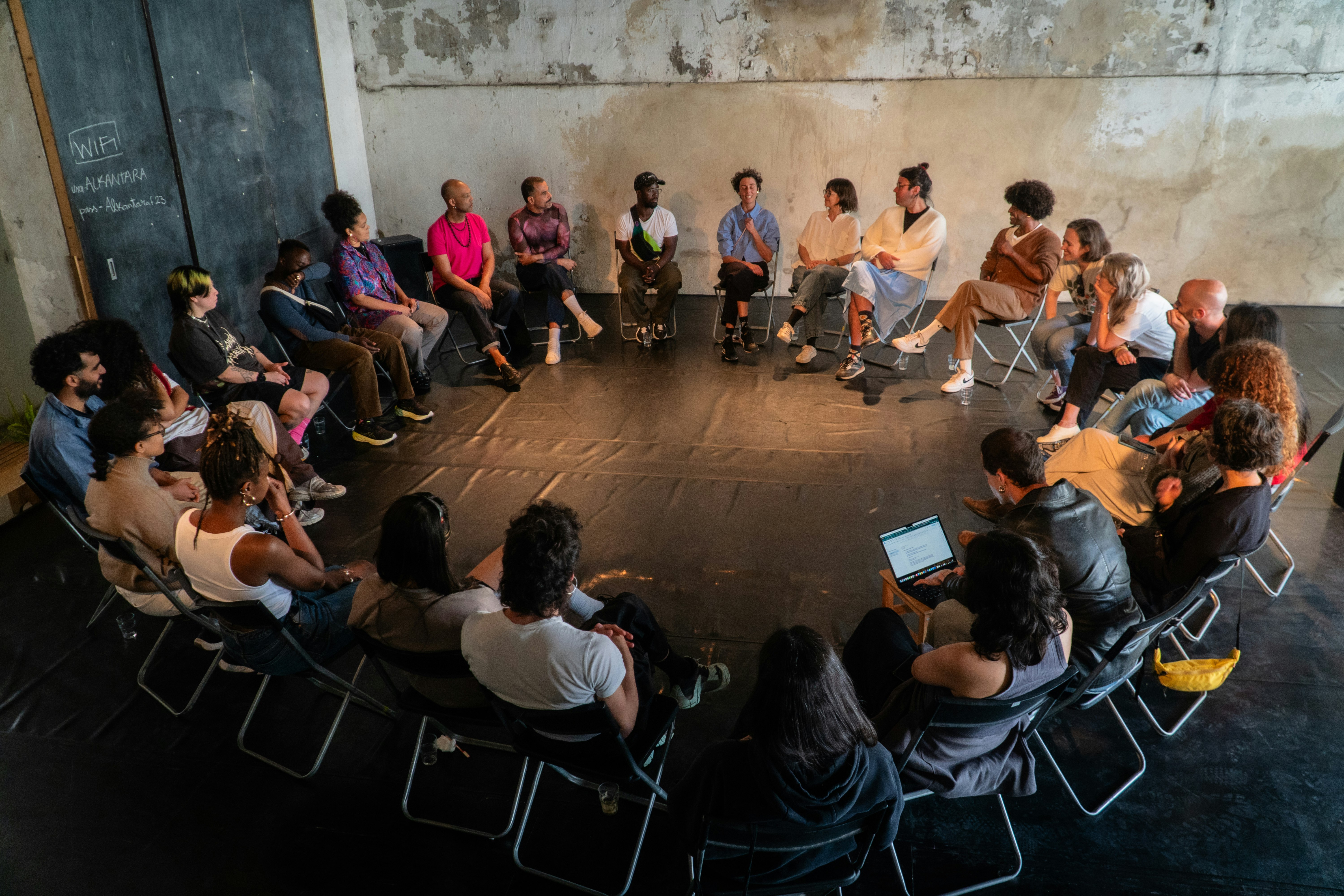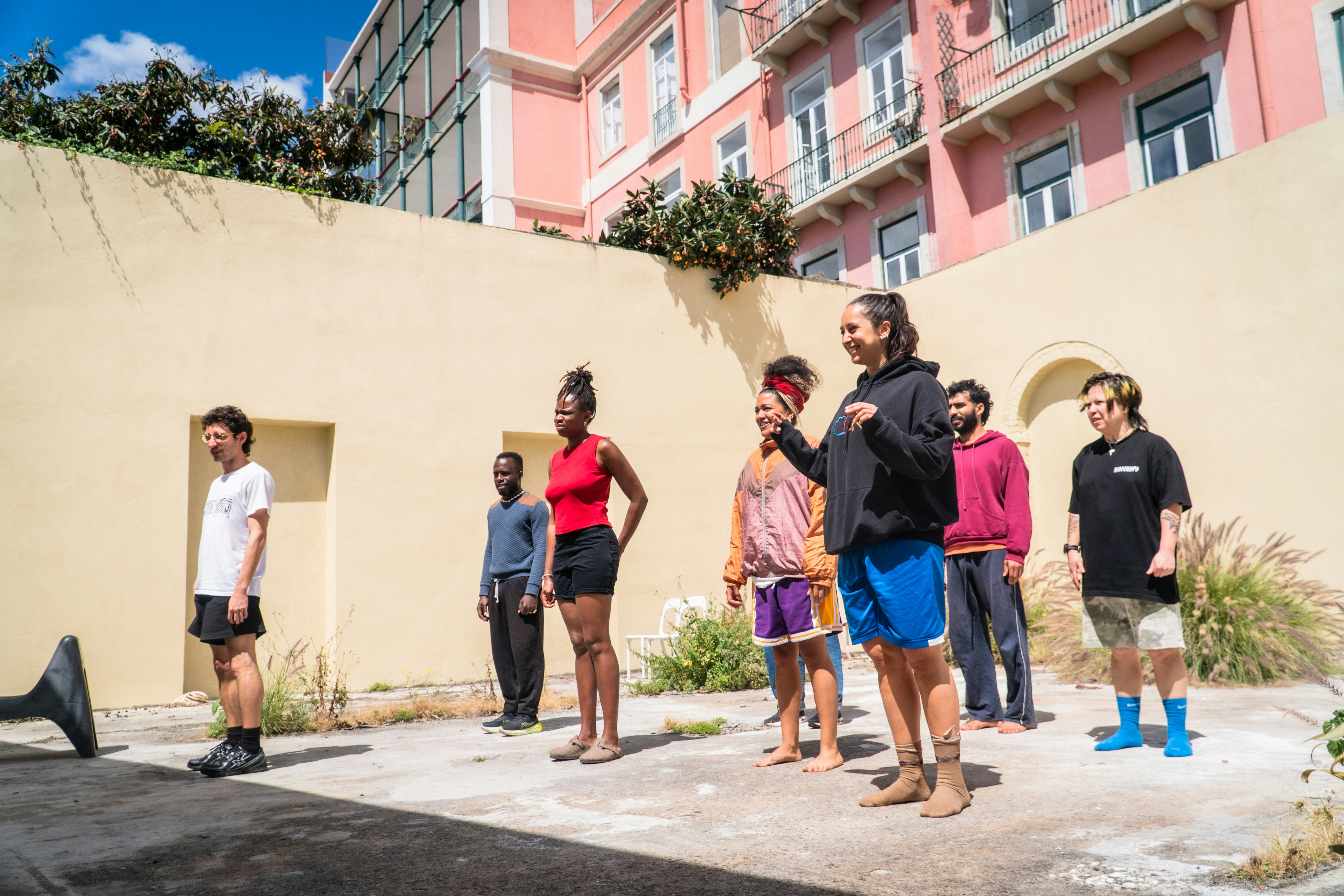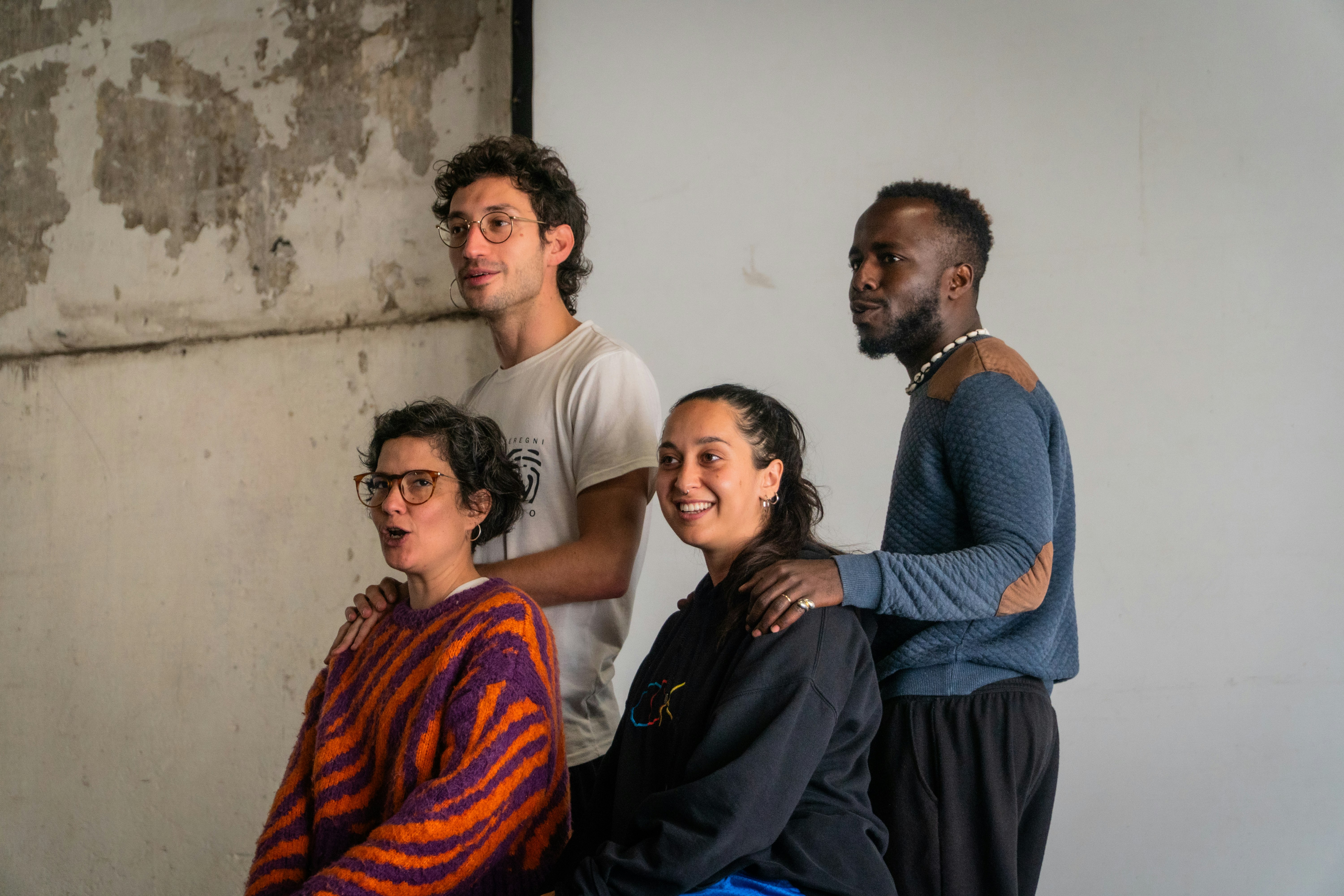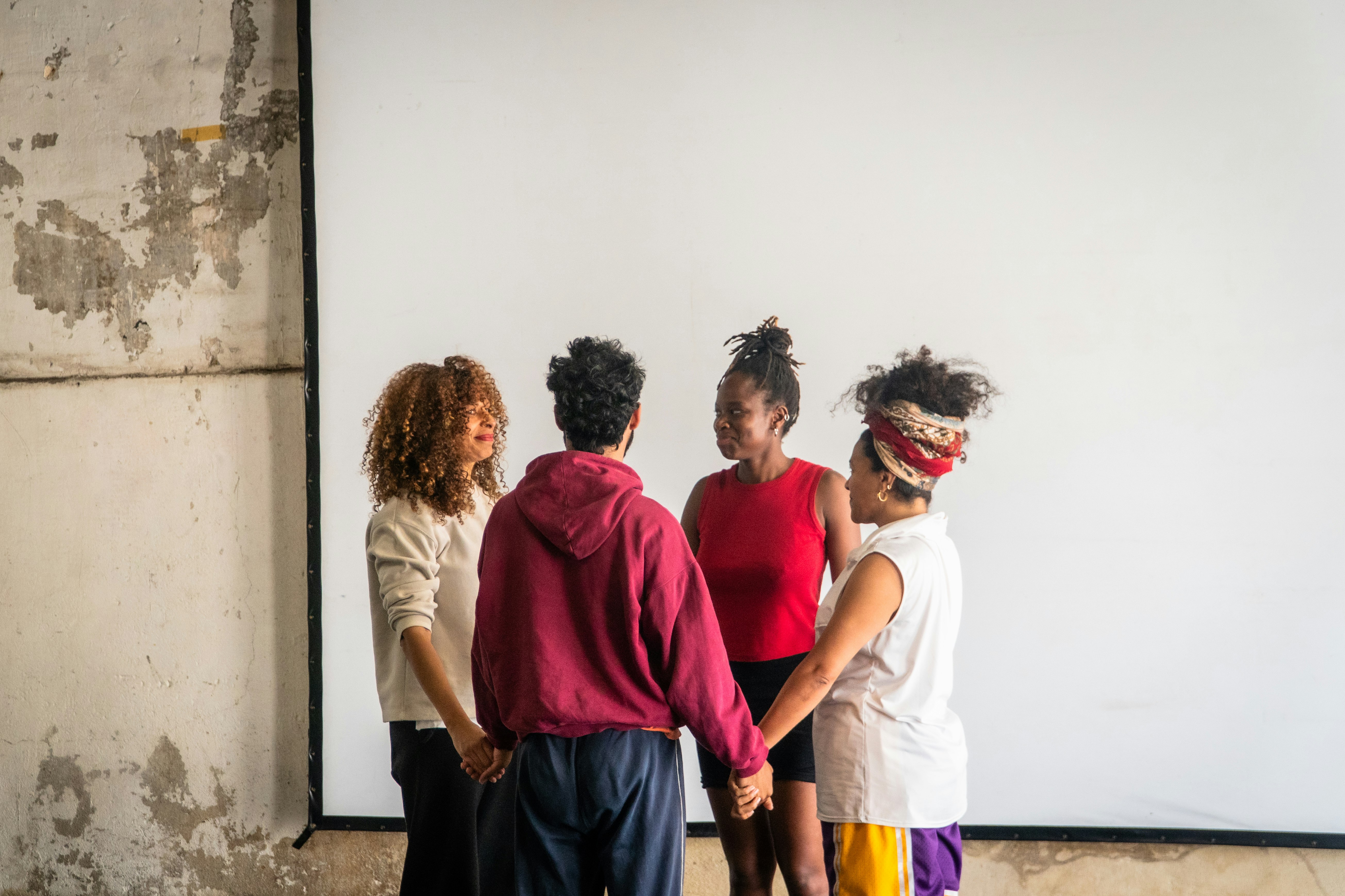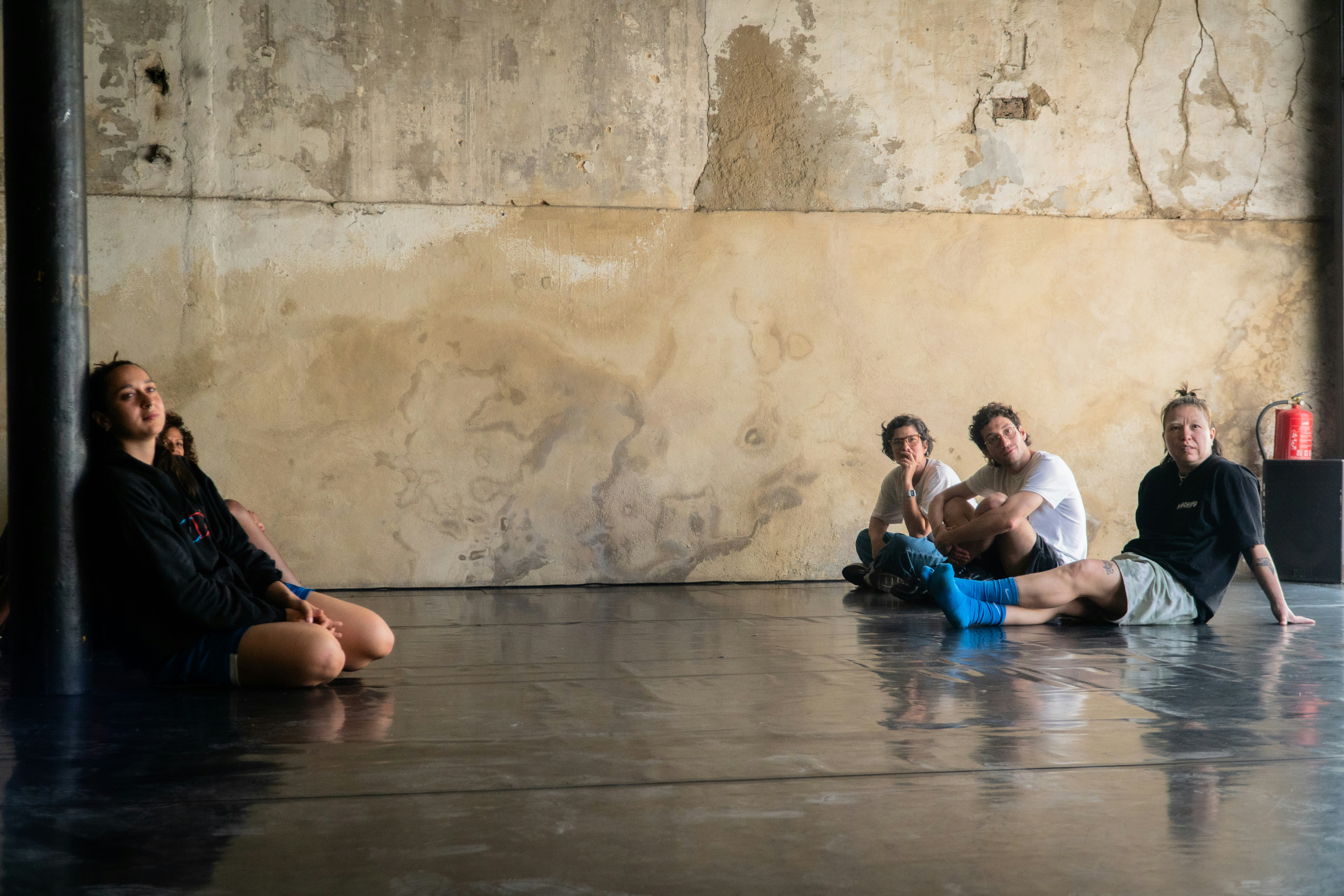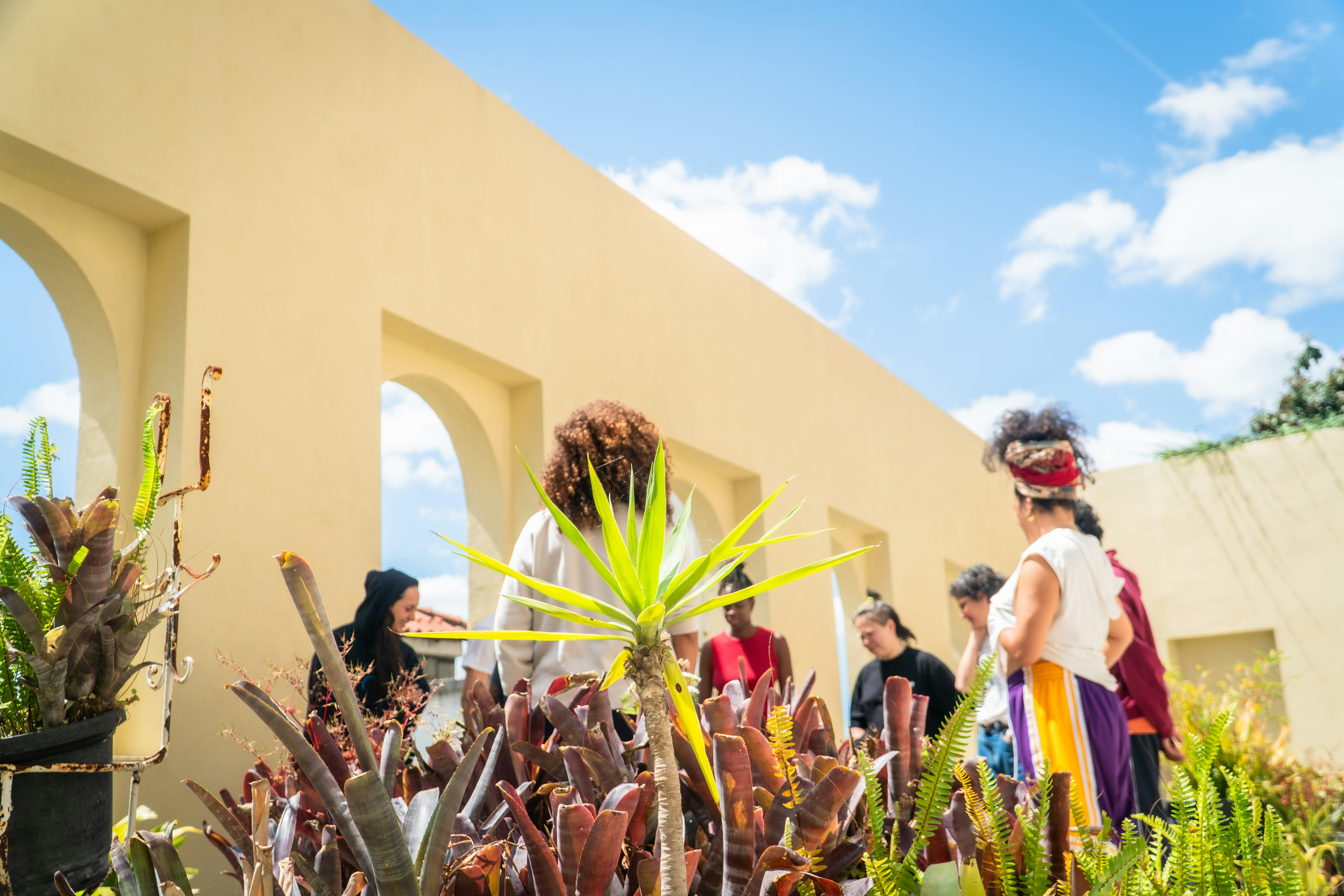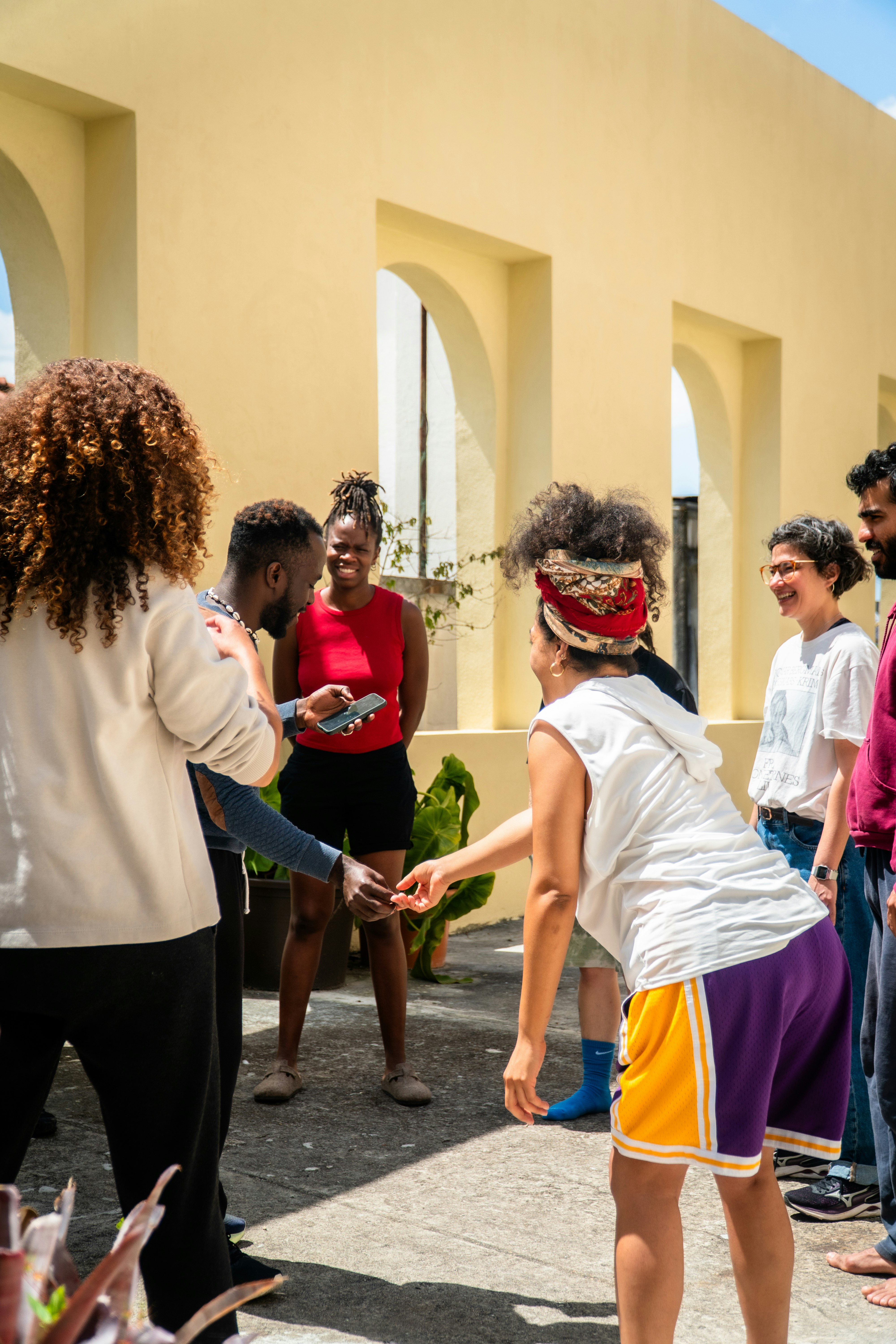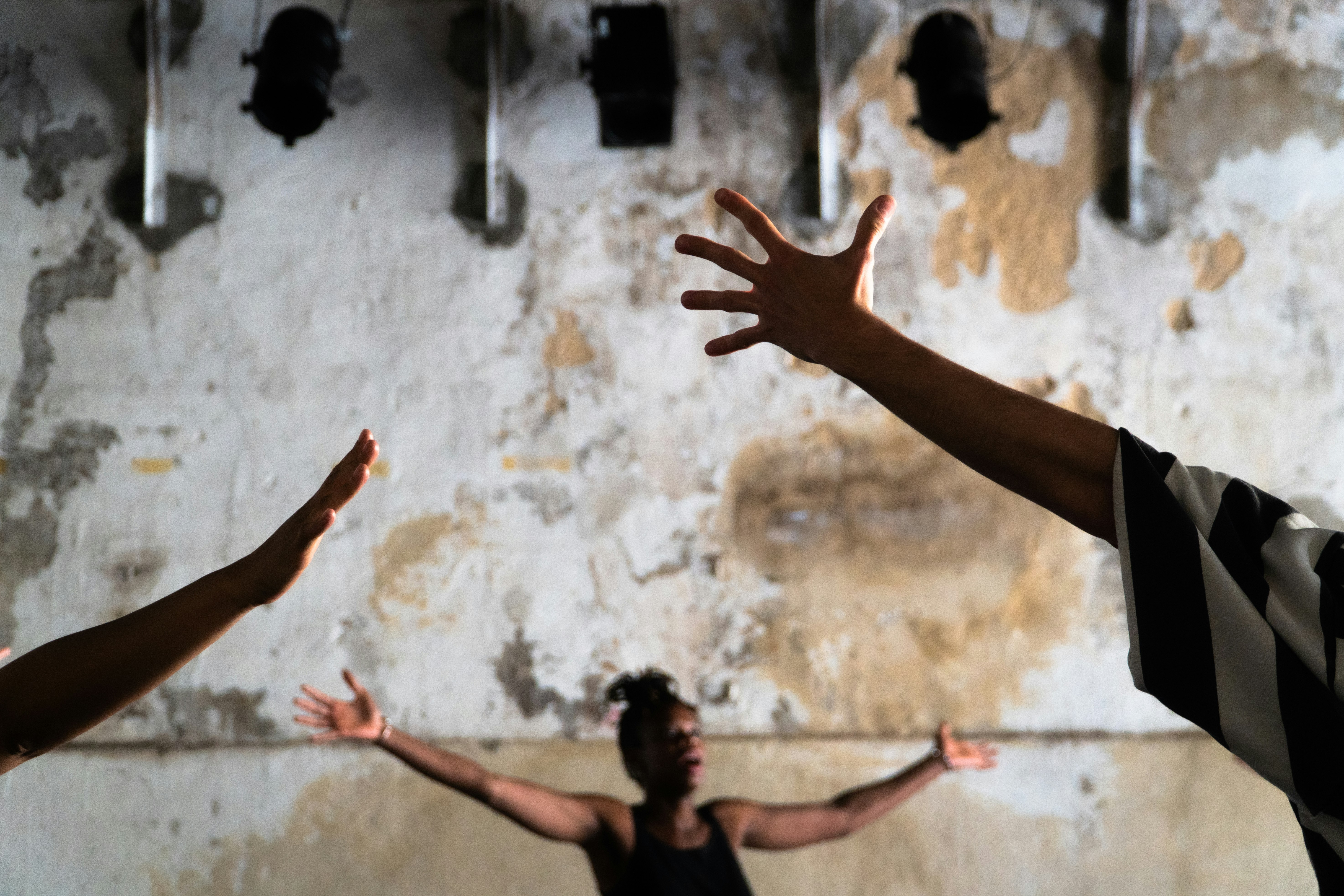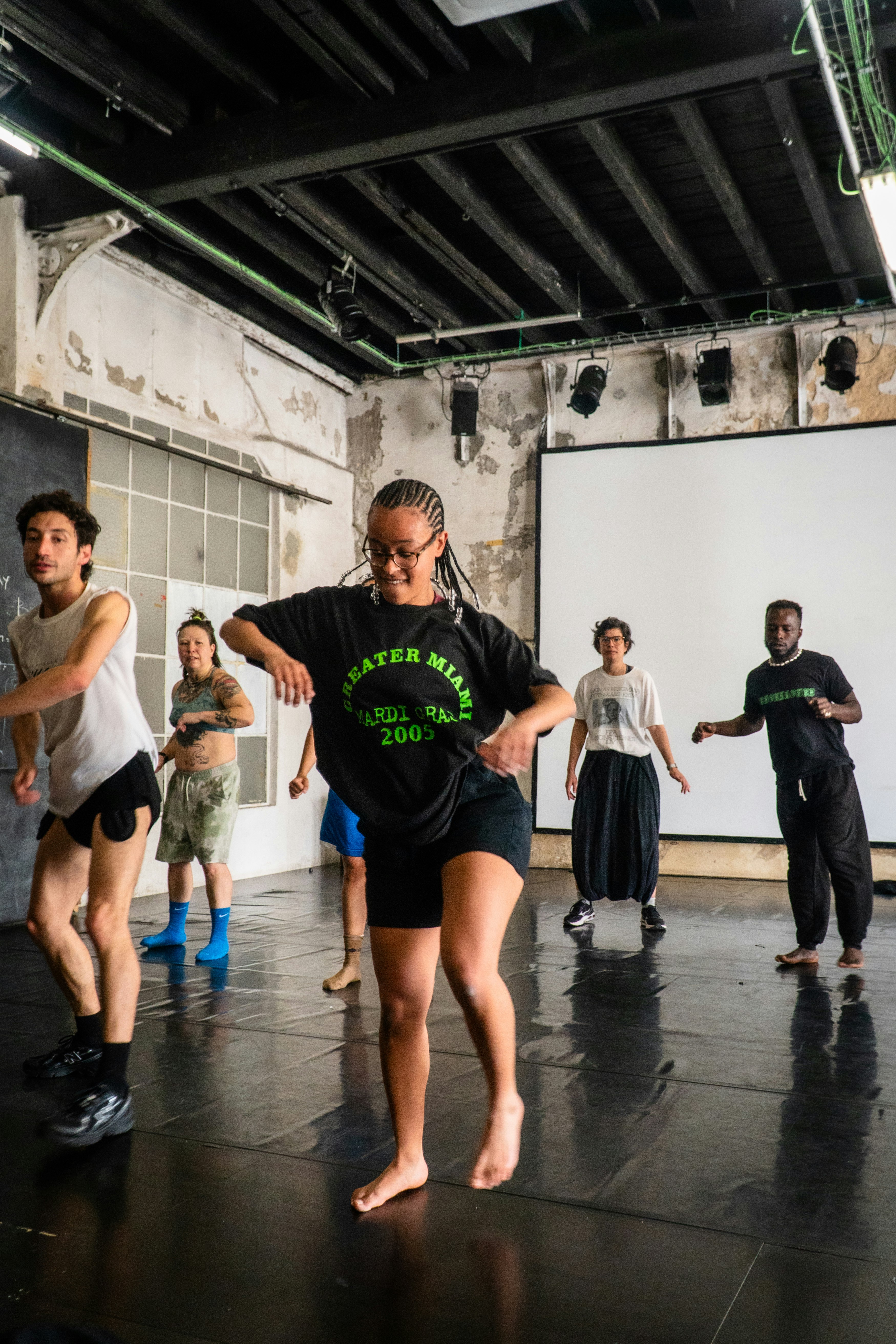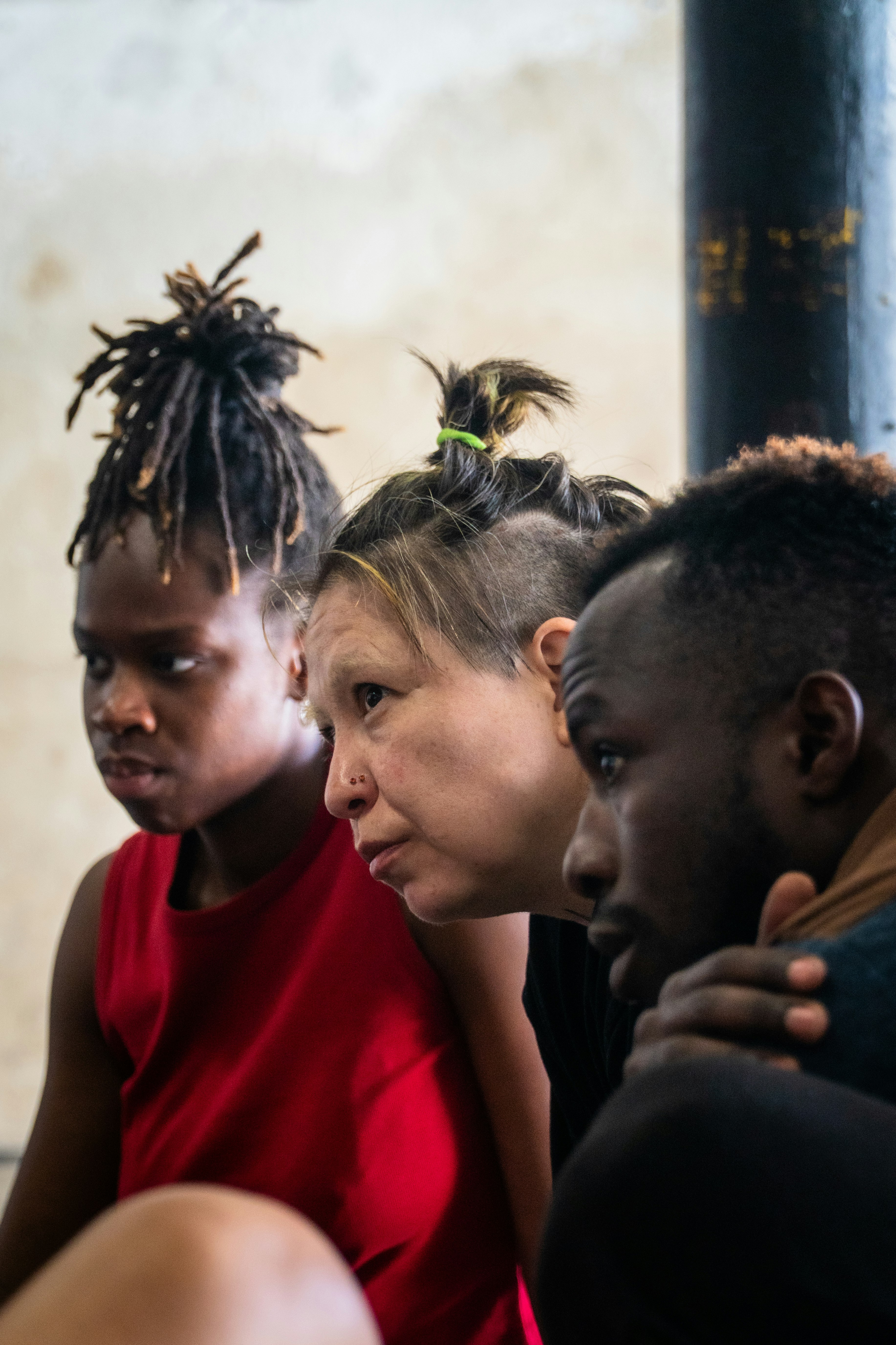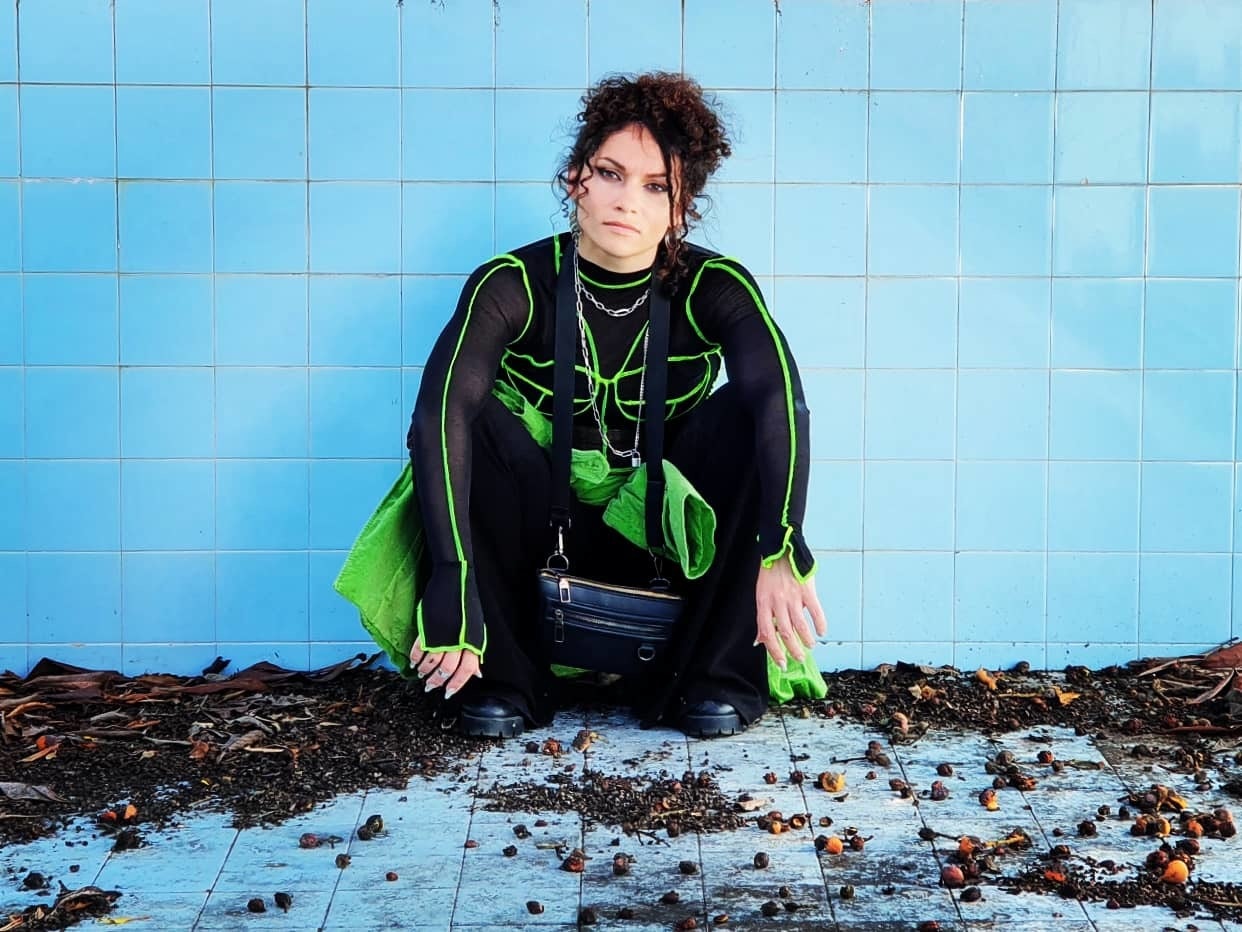May 06
Welcoming by the Alkantara team around a brunch, followed by a local tip session with artists from Lisbon.
May 07
Tour by Paulo Pascoal, one of the local curators at CAM, of Julianknxx’s individual exhibition, Chorus in Rememory of Flight at CAM.
May 7-9
Me for Dinner
Workshop with Gaya de Medeiros
In Me for Dinner, the artists explored the performer’s relationship with autobiographical material, identity, and audience interaction. Drawing on a range of embodied and vocal practices, the artists were invited to reflect on their presence and performative strategies through movement (inspired by Gyrokinesis), voice work (influenced by Francesca Della Monica), and performative approaches such as Vogue. The sessions also included group discussions around performer–audience dynamics and a viewing of excerpts from Dad for Dinner, a performance that integrates an audience member into the piece. Designed as a space for creative exchange, vulnerability and experimentation, the workshop encouraged the artists to engage in honest dialogue and shared artistic inquiry.
Some artists also had one-to-one sessions with Gaya de Medeiros to discuss about their project.
May 10
The artists met Raquel Lima, member of Common Stories Advisory Board.
In the afternoon, the artists walked Lisbon with the Batoto Yetu Cultural and Youth Association. The tour unveils Lisbon’s African character, present in the many visible and invisible memories and traces throughout the city. The tour ended with a Mozambican dinner at the atelier of sculptor Makando Frank Ntaluma.
More information about Batoto Yetu Cultural and Youth Association here.
May 13-16 (morning)
Physical warm up sessions were led by local artists: Diego Bragà and Inés Vooduness, two CommonLAB 2024 artists, and Gio Lourenço.
A Preliminary Guide to Artistic Kinship
Workshop with Sarah Lewis-Cappellari
This workshop delved into some of the consequences/politics of the socialized roles the artists play as an artistic collective. The artists employed performative techniques to explore possibilities for artistic collaboration by utilizing a set methodology where they rotated authorship and temporarily inhabited each other’s artistic identities. How will the work be read/impacted/informed if the artists release themselves from past notions of artistic identities? How can the artists begin to understand an artistic approach so that they might find a common language for artistic collaboration? In this workshop each participant shared an artwork that they have conceptualized/realized and then someone else presented it as their own.
May 17
A brunch feedback session ended this first module, with the presence of Gerhardt Haag, director of africologne and the next host of the Lab in June.

